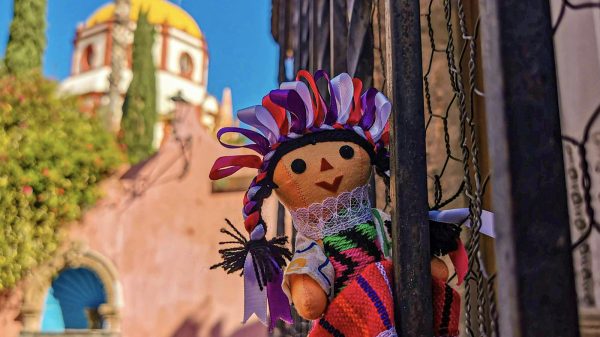“Sinimulan ni Etta (Rosales), tatapusin ni Risa (Hontiveros).”
This was a statement delivered during a “non-partisan” rally that called for the (immediate) passage of the anti-discrimination bill (ADB) that has been languishing in Congress for 19 years now. It highlighted how the same ADB was first filed in the 11th Congress by Akbayan partylist Representative Etta Rosales. That version of the bill was approved on third and final reading in the 12th Congress, but failed to gain traction in the Senate. And now – after Liberal Party’s Sen. Bam Aquino “helmed” it (and let’s admit this, just sat on it) in the last Congress – it was re-filed in the 17th Congress on December 7, 2016 as Senate Bill No. 1271 by Sen. Risa Hontiveros (herself aligned with Akbayan and LP).
The legislative status of the ADB is still listed as “Pending Second Reading, Special Order (12/14/2016)” in the official website of the Philippine Senate. And as per the office of Hontiveros, SB 1271 is still only up for interpellation in the Senate.
And so now, what Etta started, Risa is supposed to finish.
BUT – forgive me here because I know not everyone is going to like this or even want to hear this – the very first thought that came to my mind when this message was shouted was: Etta started it (and we thank her for that), and Risa may be continuing what Etta started (thanks to her, too), BUT this fight is OURS, not hers (or theirs). Tayo ang tatapos nito (It is us who will end this), not her (or them). Because if the message is just the former, then… why do WE still need to hold a “non-partisan” rally?
This led to a somewhat lengthy discussion (among some admittedly older LGBTQI community leaders, right at the People Power monument) on the road that the ADB has taken, and why we are still unable to pass this 19 years later.
And first among the points raised was/is the exclusionary approach in the development of the ADB.
I have mentioned this already in the past: When the version of the ADB that was being pushed was more comprehensive, and it specifically mentioned “persons with disability” as among those who should be protected from discrimination, I remembered asking for a version of the ADB in Filipino Sign Language (FSL) so Deaf LGBTQI people will also understand it. To date, nganga (figuratively: we are still waiting with open mouths).
Related to this, when I spoke with senior LGBTQI leaders from the Home for the Golden Gays (HGG), the current head Ramon Busa noted how they were “never once invited in any discussions related to the ADB.” So much for inclusion…
Ask the LGBTQI leaders (particularly those developing the ADB), too, where to get a copy of the proposed law, and you’d probably just be told to “get it from the Internet” in such-or-such Website. As if every LGBTQI Filipino has access to the Internet [e.g. I have spoken with LGBTQI Filipinos from Mindanao who told me: “Wala nga kaming kuryente, Internet pa kaya (We don’t even have electricity, much more Internet access)!”]…
Secondly, there’s this seeming credit hogging that shifted the focus on the intent of the bill (i.e. OUR protection) to “who gave you the ADB?”. The latter part changes the discussion by highlighting who we “owe” for our rights; who we should “support”; who we should hold our allegiance to. In Filipino: Kanino ang utang na loob.
Thirdly, there’s this seeming reluctance to admit that our approach/es to ADB may already need to be overhauled.
Get this: 19 years after the first ADB was filed, a major issue that those opposing it continue to raise is “because ADB means LGBTQI people will be granted marriage equality”. That people continue to erroneously believe the ADB=marriage equality narrative highlights a failure in the way/s of getting the message/s across of the ADB handlers. And, yes, that this has been happening for 19 years now means… these same handlers already need to reconsider their approaches already (!).
It can be said that many people (including many in the LGBTQI community) dislike Rep. Geraldine Roman (with her shifting political parties, and her support for the death penalty, among others). But – heck! – she helped (in a big way) to get the ADB passed in the Lower House in just over a year. Let’s emphasize that: Just over a year. This hasn’t happened for over a decade under our “usual” approach(es). You don’t have to kowtow to her or to even love her; but let’s all at least start reaching across aisles so that, maybe, we can learn from each other; on what works and what doesn’t, and then apply what’s effective so we get the result that we all want (in this case, passage of the ADB).
It’s still questionable if Albert Einstein really said this, but the thought remains the same: “The definition of insanity is doing the same thing over and over again, but expecting different results”. Nineteen years is far too long; if we think our approach is working and shouldn’t be changed, we may have to wait for 19 more years…
And lastly, rounding up everything, the LGBTQI community needs to be made to understand that this is OUR cause. This is why the “Sinimulan ni Etta (Rosales), tatapusin ni Risa (Hontiveros)” statement is specious for me.
As the LGBTQI community in the Philippines pushes for the passage of the anti-discrimination bill, alliance building is key, thus the need to break partisan lines. Otherwise, the internal divisions will be our fall.
We need to, first, fix our ranks if we want to fix this world.
The March 17 rally, for me, shouldn’t have been just a rally; it should have been the Pride MARCH. After all, if the march is our political move for our Pride, then this WAS the moment to best show this (instead of the once-a-year parade that is led by sponsors that are able to give moolah, easily displacing LGBTQI organizations).
This would have been the best time to unite the community irrespective of its members’ political colors, age, physical ability, social class, SOGIE and so on. Instead, as was mentioned to me by some pro-Duterte LGBTQI leaders, “It could just turn out to be an anti-Duterte rally”, so that they opted NOT to participate in a struggle that also includes them. No one reached out to them; they were just ignored, classified as “others”, even if we all belong under the same rainbow banner (thus highlighting again the “exclusionary” tactic mentioned above).
This should have been the best time to teach LGBTQI Filipinos to be more political (in pushing for our human rights), instead of ending up highlighting that yes, we are demanding for our rights, but not everyone is willing to brave the fight for these rights.
So yes, we say thank you to those who started the fight for us and are continuing this fight for us. But we need to own this fight. Only then will this succeed.





























































